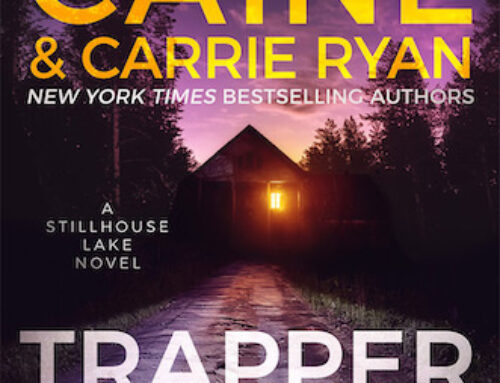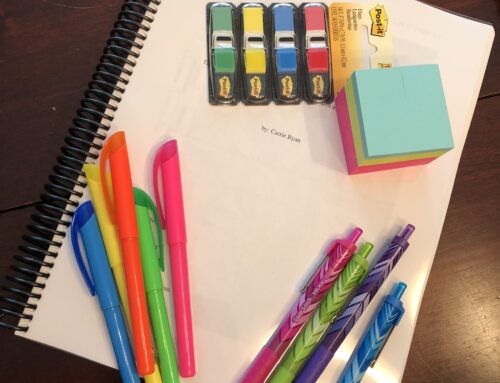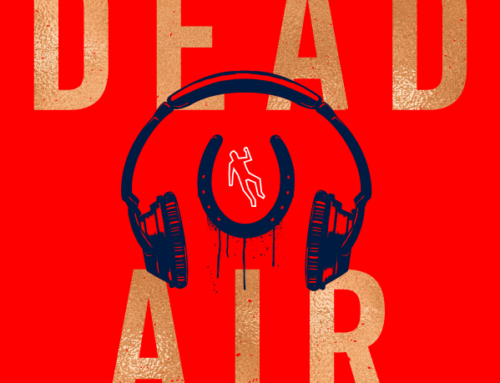My friend, RJ, just posted about titles and it got me thinking. I think titles can be terribly hard to figure out and feel uber lucky that my title (The Forest of Hands and Teeth) was accepted by Delacorte. Incidentally, this book has ALWAYS been FHT even though I never intended that to be it’s eventual title. I just titled it that to have something to save it under and it stuck!
Anyways, right now, many of my friends are in that stage where they’re having to figure out what their final titles will be — they sold the book under one title but the publisher wants a different one. Aprilynne’s book went from “Autumn’s Wings” to “Wings.” RJ’s book is being published under it’s original title “Knife” in the UK, but will be “Knife, The Hunter” in the U.S. And on top of that, other author friends who might be keeping their original titles have to come up with series titles (or maybe they have a series title and need to come up with individual book titles).
And all of this reminds me of two fantastic articles by Barry Eisler that I read a while back about titles and their significance. I think these two articles, more than anything else, totally changed the way I think about titles and titling books.
Part I – Automatic Resonance — resonance that’s present in the title of a book you know nothing else about
Part II – Acquired Resonance — resonance that’s acquired from reading the book
When I think about automatic resonance I think of books that are almost clear on their face — John Grisham titles, for example. But it doesn’t have to be something a clear as a John Grisham, I think a title can also be the way the words converge to evoke a mood (A Great and Terrible Beauty, for example).
Acquired resonance, on the other hand, takes reading the book for the meaning to become really clear. As Barry Eisler points out, a lot of books with place names have acquired resonance (he uses the example of Watership Down). Another example he mentions of acquired resonance is The Kite Runner. I just read this last weekend and I completely agree with him — The Kite Runner is a title that doesn’t mean much until you read the book and then – WOW – powerful title.
Barry goes on to talk about what type of resonance works best for what kind of books and concludes with, “Simply put: automatic resonance tends to help a book gain momentum; acquired resonance is what sustains it.”
So here are a few titles that I’ve been mulling over as I ponder automatic and acquired resonance. What are your thoughts (on these titles or on the idea of resonance period?) Any other titles that spring to mind?
Shadowed Summer (Saundra Mitchell)
Flash Burnout (LK Madigan)
Fairy Lust (Cyn Balog)
The Demon’s Lexicon (Sarah Rees Brennan)
Wings (Aprilynne Pike)
And of course, there’s also my title – haha! And if you’re interested in learning more about these books (which might help with figuring out acquired resonance) you can find them all here.





I’d never heard that resonance theory before, but thinking about it now, I think it sounds valid. I know some books I pick up because the title speaks to me (and a few times, that was all about the book that spoke to me). FHT is one of those grabby titles that I’d want to pick up even if I didn’t know about you from online. Other books I’ve read, the title wasn’t very sparky but the contents really had me.
I’m notorious for stinky titles for my own books, but I think I’m getting better at it. I still just throw on any old thing for the filename and working title, but I’ve come up with better titles to use if they ever get published.
Thanks so much for the links to Barry’s articles. I’ve done a lot of thinking and wondering about titles and his resonance ideas make a lot of sense. FYI, the title of your novel was the thing that captured my interest and led me to your blog when I first read about it on your agent’s blog. 🙂
my editor and i haven’t discussed the novel title yet. *gulp* thanks for the links!